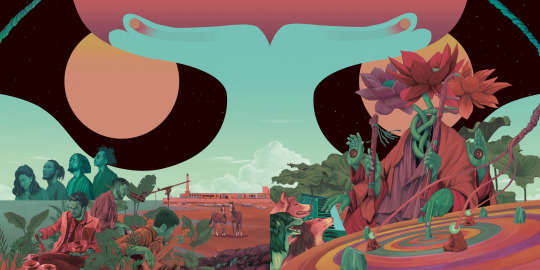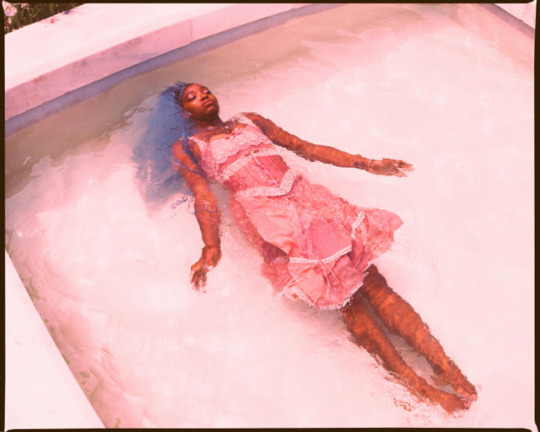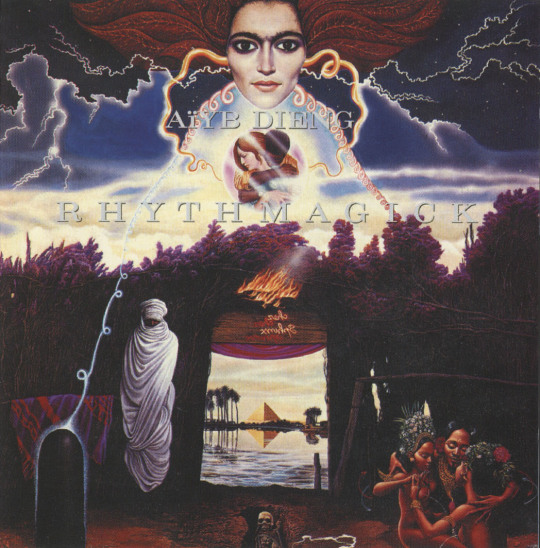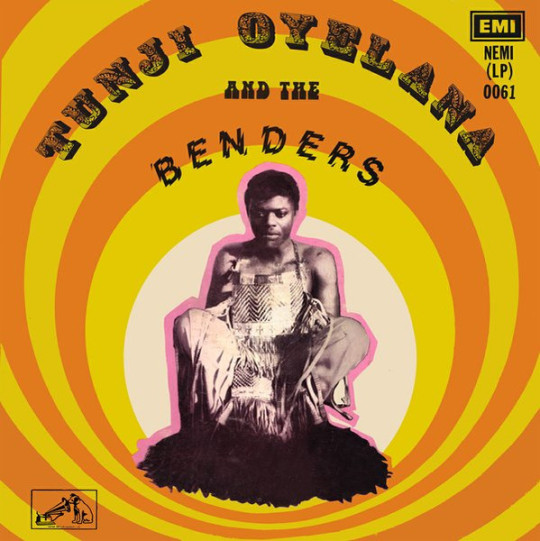#west african music
Text
Kalan Nege - Issa Bagayogo
#issa bagayogo#kalan nege#music#world music#west african music#malian music#an enduring delight#Bandcamp
17 notes
·
View notes
Video
youtube
Afrika by Dobet Gnahoré
#music#african music#dobet gnahore#dobet gnahoré#music of ivory coast#ivorian music#west african music#music of west africa#video#music video
26 notes
·
View notes
Video
youtube
Tunani (AKA Tunan) by Mamman Sani
#music#nigerien music#mamman sani#mamman sani abdoulaye#mammane sani#mammane sanni abdoulaye#mamman sani et son orgue#sahelsounds#sahel sounds#sahel#west african music#music of west africa#african music
40 notes
·
View notes
Video
youtube
I LOVE the music of Amadou & Mariam! This music video shows the amazing imagination of kids living our their dreams and imagining the boundless possibilities of the future. The lyrics are in French (Mali was once a French colony) and warn about the dangers of lies and division among community, a relevant message for our troubled times. Something I like about West African music is that it’s insanely catchy and ear-appealing but features lyrics with serious messages and social criticisms with rousing calls to action, instead of vapid sexual innuendo and drug references like a lot of western music these days.
#amadou and mariam#west african music#west africa#music#african music#Mali#afrofuturistic#positive messages#children playing#imagination#africans#african culture#creativity#world music#musicians
7 notes
·
View notes
Text
235: Pierre Akendengué // Afrika Obota

Afrika Obota
Pierre Akendengue
1976, Saravah
Gabonese icon Pierre Akendengué doesn’t have the same level of international notoriety as many of the other West African stars of the mid-‘70s and ‘80s, perhaps because he didn’t play Afro-funk, highlife, or any of the electronic-tinged dance music that gets collectors hot under the collar. His music rather anticipates the “world music” sound as it existed by the end of the 1980s—smooth quavering vocals in a mix of native and colonial languages (here Myene and French), with laidback Afro-Cuban beats, softer synth tones, and a dash of influence from easier-listening Western genres (in Akendengué’s case, French chanson and jazz fusion). Despite this somewhat lukewarm-sounding description, Akendengué shouldn’t be written off lightly. 1976’s Afrika Obota, his second LP, is a wonderfully-performed record that covers great stylistic ground, from soulful acoustic folk (“Negro,” “Evo”) to sophisticated highlife-lite (“Sa gunu, sa gunu”) to a kind of shimmering, cloudy jazzy pop that faintly anticipates the vibes of French downtempo of the ‘90s (“Considerable” and especially “Orema ka-ka-ka”). Like a lot of the most successful musicians of ‘70s West Africa, Akendengué had the opportunity to visit France to study and work with local and diasporic musicians. Because of his politics, which ran afoul of authorities back home in Gabon, Akendengué’s first few records were recorded in France where he resided until 1978, and Afrika Obota benefits from the stellar facilities at the well-known Studio Saravah in Paris. I’ve only heard his first two records, but he has continued recording well into his seventies, and I’m sure there’s much to explore in his catalogue. In terms of ‘70s African records that can be had for a song, Afrika Obota is a must.
youtube
235/365
#Pierre Akendengué#'70s music#african music#west african music#high life#chanson#gabon#gabonese music#music review#vinyl record
2 notes
·
View notes
Text


A little S.E. is all I need to get me through the week. Mississippi Records really went all out on these compilations-- I give them my highest recommendation!
Just lookit that beautiful reproduction label!
#S.E. Rogie#SE Rogie#Mississippi Records#Palm Wine#Palm Wine Music#sierra leone#african music#west african music#nedison collection#vinyl
5 notes
·
View notes
Text
Currently working on Leona's one shot and taking this opportunity to listen to some Ali Farka Touré. I feel like desert blues is a good genre for Leona <3
youtube
4 notes
·
View notes
Text
United Freedom Collective - Am Ta and Space Intention (2022 & 2023)
Two amazing EP's showcasing various genres from around the world

UK based global folkloric entity United Freedom Collective have created a stunning and powerful collection of tracks over the span of two EPs. The collective uniquely blend diverse folk influences from around the world, electronic elements, classical and jazz instrumentation, plus dub, soul, indie, hip hop and funk elements into a cohesive free flowing output; and the spiritual and philosophical inspiration behind the music give it additional depth and power. This is music to be experienced.
#united freedom collective#world music#folk music#psychedelic music#west african music#chinese music#psychfolk#soul music#electronic music#cave dweller music#hip hop#dub music#funk music#Bandcamp
3 notes
·
View notes
Text
The Narcotix — Dying (Self-Released)

“The Maiden” is Dying’s longest and most astonishing track. It starts in disembodied, wordless vocal sounds, a three-some of “la-la-lah”s breathed first by one vocalist, then joined by another. Their notes play tag with one another, overlapping and darting in and over and around, all by themselves until a malleted percussion instrument joins, plunking out silvery tones in conversation but not synchrony with the voices. The song picks up other instruments as it goes, a syncopated funk bass, a trebly, twitchy highlife guitar. A tropical heat and humidity permeates the sound — you might flash on Flora Purim in full skittering fusion-jazz flight — but it is also cerebral and clean. At least it is, right up to the moment when one singer, Esther Quansah I believe, intones “Someone told me to make an impression/someone one made me…” and then a wild cacophony of voices and drums and guitar tumble down in a swirl.
The Narcotix is a Brooklyn band centered around two female singers, both striking in their distinct ways. Esther Quansah wields a jazzy melismatic alto, an alto sax of a voice if you will. Becky Foinchas, who also plays keyboards, sounds more like a trumpet, producing clear, bell-like tones that ring out against the baroque squiggles and flourishes of her partner.
The two of them are both children of the African diaspora. Quansah’s family is from the Cote D’Ivoire, Foinchas’ from Cameroon. You can hear that West African influence in many of these cuts, in the warmth and clarity of the guitars and the syncopation of the percussion. Yet The Narcotix’s music has a theatrical sweep and neoclassical precision. It reminds me a lot of Ohmme’s complicated pop, though with a bit of world music penciled in.
Thus while the early single “Mother,” glitters with bright, pizzicato keyboards and throbs with luminous synths, its focus remains on the two women, Quansah singing low and fluttering over the notes in syllable stretching free play, Foinchas dipping in and out of the main melodic line with airy descants and counterpoints. The words disappear into the pure sonic pleasure of dizzying vocal interplay, rising to the surface occasionally in French and then in English to ask “What’s the meaning of time?” and then later answer “Time means nothing, nothing at all.”
This is the Narcotix’s first full-length following a 2021 EP called Mommy Issues, and it is extraordinarily assured given the early stage in the band’s development. The Narcotix already has its own enveloping and idiosyncratic sound, an aesthetic that touches on West African forms without recreating them, and a command of complicated, multi-voiced song structures. Nothing else sounds like The Narcotix at the moment. Don’t miss it.
Jennifer Kelly
#the narcotix#dying#jennifer kelly#albumreview#dusted magazine#indie#west african music#scatting#vocal arrangements#brooklyn
1 note
·
View note
Text
💃🏾✨🌹🖤

#Afro Cuban fusion#Guinean#percussionist#amara touré#west african music#le star band de Dakar#Senegal#afro music#music#tropicales#blacktumblr#spotfiy#Spotify#blackgirlmagic#caribbean#black tumblr#soundscapes of Africa
1 note
·
View note
Photo

Rhythmagick by Aiyb Dieng
P-Vine
1995
Jazz / Afro-Jazz / Dub / Funk / Global Jazz / African Traditions / Senegalese Music / West African / Jazz-Funk
#jazz#afro jazz#dub#dub music#funk#global jazz#africa#african#african music#african traditions#senegalese#senegal#senegalese music#west africa#west african#west african music#jazz funk#music#90s#90s music#90's#90's music
1 note
·
View note
Text
Kora Tinga Tinga | Walt Disney World | Animal Kingdom | African Kora | 2022 | African Music
Kora Tinga Tinga | Walt Disney World | Animal Kingdom | African Kora | 2022 | African Music

View On WordPress
#kilimanjaro#animal kingdom vlog#Disneyland#african music#Walt Disney World#kora music#Disney#kora tinga tinga#Animal Kingdom#kora#Disney Parks#africa#Disney Music#harambe#Disney World#african#disney&039;s animal kingdom#world music#disneyvacation#west african music#music#animal kingdom africa#disney animal kingdom#african musical instruments#animal kingdom disney world#west african kora#walt disney world 2022#live entertianment#Animal Kingdom 2022#africa street music
0 notes
Video
vimeo
Forêt by Luka Productions from the Sahel Sounds Label Sampler - Animation: Lisa Barcy
#music#west african music#music of west africa#luka productions#luka prod#sahel sounds#malian music#sahel#music of mali#timothy stollenwerk#sahelsounds#luka guindo#video#music video#animation#lisa barcy
31 notes
·
View notes
Video
youtube
My favourite live concert of West African music, by Malian musician Issa Bagayogo.
2 notes
·
View notes
Text

#Tunji Oyelana And The Benders#afrobeat#afrofunk#funk#west african funk#african funk#nigeria#africa#african#world#world music#record sleeve#discogs
13 notes
·
View notes
Text
213: Pierre Sandwidi // Le Troubadour de la Savane

Le Troubadour de la Savane
Pierre Sandwidi
2018, Born Bad (Bandcamp)
In a reissue biz that has been absolutely rocking for the past decade, it takes something to stand out, but Le Troubadour de la Savane, 1976–1980 (The Savannah Troubadour) is easily one of the best compilations of recent years. It surveys the career of Burkina Faso great Pierre Sandwidi, collecting most of his singles and a few album tracks cut during the prime of his brief recording career. (Of note: The misnamed comp includes a number of songs from 1982.) Then as now, Sandwidi’s country was economically destitute thanks to the lingering effects of colonial rule, military coups, and drought, and opportunities to record physical music in the 1970s were rare. West Africa is rich in musical tradition, so it’s not a surprise the country produced an artist as distinctive as “the singer from the bush”—but it feels like a stroke of luck that he was documented at all. Sandwidi’s music reflects the sounds of Afro-Beat, high life, funk, and rumba that were ascendent in the region, but also French pop: his music has a sound of his own, pensive even when it dances, cosmic and twinkling even as it protests the state of affairs on the ground.
youtube
Sandwidi’s music is fairly lo-fi compared to some of the music being produced in neighbouring countries, but he makes a virtue of it. Much of is less beat-forward than I’m accustomed to in African music. On “Ouaga affaires” (“Ouaga Business”), the bass and drums fade into a kind of hypnotic tidal pull beneath a shimmering sea of organ chords and ultra clean high life guitar. The icicle gleam of “Je suis un salaud” (“I’m a Bastard”) and “Fils du Sahel” (“Son of the Sahel”) almost puts me in mind of ‘80s private press synth-pop, while “Tond Yabramba” (“‘Round Yabrama”) improbably finds a midway point between late ‘60s English prog and Middle Eastern pop of the same era. There are excellent funky tunes to be had here (e.g. “Mam Ti Fou,” “Yamb ney capitale”), but I feel like the relatively muted reaction to Troubadour may come down to the fact that this sound doesn’t quite fit the predilections of the beat obsessives who tend to be the most obsessive about this era and region. But if you’re looking for African music that sounds as apt on a rainy day as sunny one, give this one a try.
213/365
#pierre sandwidi#burkina faso#burkina faso music#upper volta#upper voltan music#west african music#west africa#high life#afro beat#'70s music#'80s music#funk#music review#vinyl record
3 notes
·
View notes